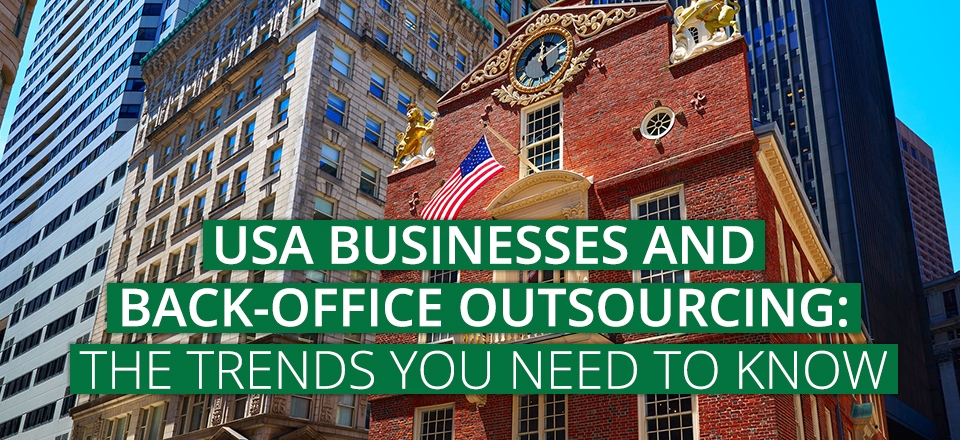No country has embraced back-office outsourcing quite like Australia has followed the United States’ lead. Even with ongoing debates about domestic employment impacts, Australian companies continue expanding their use of offshore business process outsourcing (BPO) providers while simultaneously growing their local outsourcing partnerships. The trend shows no signs of slowing.
As commercial awareness of outsourcing benefits reaches new heights and the BPO industry matures further, businesses of all sizes are capitalising on the opportunities. The global outsourcing market is expected to reach USD 512.4 billion by 2030, with Australia playing an increasingly significant role.
If your business is considering back-office outsourcing, understanding the current trends affecting the industry in 2025 will help you make informed decisions.
Startups and SMEs Lead the Charge
Outsourcing was once dominated by large corporations with resources for lengthy fixed-term contracts with BPO providers. That dynamic has shifted dramatically.
According to Deloitte’s 2024 survey, 80% of executives reported that they are planning to maintain or increase investment in third-party outsourcing. More tellingly, 37% of small businesses outsource at least one business process, with this percentage growing rapidly.
Most startups now engage outsourcing from day one, whether through independent virtual assistants, remote contractors, or specialised VA companies like Virtual Done Well. 66% of U.S. companies report outsourcing in at least one department, a trend that Australian businesses are following closely.
This shift represents a fundamental change in how businesses approach growth and scalability, particularly in the startup ecosystem where agility and cost-effectiveness are paramount.
It’s Not Just About Saving Money Anymore
The biggest shift I’ve seen in the industry? Companies aren’t outsourcing just to cut costs.
Back in 2020, 70% of businesses said cost savings was their main reason for outsourcing. Today? Only 34% say that. The real drivers now are much more strategic. About 35% of companies outsource because they need to meet increasing customer demands. Others want access to specialised skills they can’t find locally.
Think about it this way: access to talent now ranks ahead of cost savings for the first time since the pandemic. Companies have realised that finding the right expertise matters more than finding the cheapest option.
Virtual assistant companies have adapted to this shift. They’re no longer just supplying people to handle repetitive tasks. They’re providing skilled professionals who can jump into your existing teams and add real value from day one. That’s what we focus on at Virtual Done Well—finding VAs who can actually drive your business forward, not just tick boxes.
The Traditional Office is Disappearing
The distributed workforce isn’t coming—it’s already here.
MBO Partners found that 4.7 million independent workers in the U.S. earned over $100,000 in 2024. That’s up from 3 million just four years ago. These aren’t people struggling to make ends meet; they’re skilled professionals choosing flexibility over traditional employment.
Even more striking? By 2027, half of the US workforce is expected to be freelancing. Australia is following the same path, though our numbers lag slightly behind.
I see this every day. Companies that once insisted on having everyone in the office are now running entire departments remotely. Startups are building million-dollar businesses with teams spread across three continents. The old model of needing everyone in the same building feels almost quaint now.
Large Australian corporations are catching on. They’re restructuring departments to include more freelancers and remote workers. Not because it’s trendy, but because it gives them access to better talent and more flexibility.
Why the Philippines Dominates (and Will Continue To)
Let’s address the elephant in the room: when Australian businesses outsource, they usually look to the Philippines first. There’s good reason for that.
The Philippine BPO industry hit $38 billion in revenue in 2024 and will likely reach $40 billion by 2025. The sector employs over 1.7 million full-time workers, up from 1.57 million last year.
But the numbers only tell part of the story. Here’s what actually matters for Australian businesses:
Language skills are exceptional. The Philippines ranks second in Asia for English proficiency, just behind Singapore. When you’re on a call with a Filipino VA, you’re not struggling through language barriers—you’re having a real conversation.
They get Western business culture. This isn’t something you can teach in a training program. Filipino professionals understand how Australian businesses operate, what clients expect, and how to communicate effectively in our context.
The value proposition is unbeatable. Yes, labour costs are lower, but that’s not the whole story. You’re getting university-educated, tech-savvy professionals who often outperform their Australian counterparts in certain areas. I’ve seen Filipino VAs run circles around local staff when it comes to CRM management and digital marketing.
Government support keeps improving. The Philippine government actively develops the BPO sector through infrastructure investment, training programs, and business-friendly policies. This isn’t going away—it’s getting stronger.
AI is Changing Everything (But Not How You Think)
Everyone’s talking about AI replacing workers. That’s not what’s actually happening in the outsourcing industry.
87% of HR leaders plan to integrate AI into their outsourced services this year. But they’re not using it to replace people—they’re using it to make their people more effective.
Here’s what this looks like in practice: 77% of companies now outsource IT infrastructure and cybersecurity. These outsourced teams use AI tools for threat detection, automated responses, and predictive maintenance. But you still need skilled humans to interpret the data, make decisions, and handle complex problems.
Philippine BPO companies understand this. They’re investing heavily in training their workforce to work alongside AI tools. Your VA might use ChatGPT to draft content, but they’re the ones ensuring it matches your brand voice and actually makes sense for your business.
The Numbers You Need to Know
Let me give you the current state of play:
57% of UK organisations plan to increase their outsourcing in 2025. The global customer experience outsourcing market alone is worth $82.23 billion. Overall, the outsourcing market should hit 450 USD billion by the end of 2025, growing at about 5.1% annually since 2020.
What does this mean for Australian businesses? Simply put, if you’re not considering outsourcing, you’re potentially putting yourself at a competitive disadvantage. Your competitors are already using it to move faster, access better talent, and operate more efficiently.
What This Means for Your Business
If you’re running an Australian business, these trends point to clear opportunities.
The Philippines remains your best bet for back-office outsourcing. You get skilled professionals who understand your business culture, work in compatible time zones (minimal difference with Eastern states), and deliver consistent quality. The infrastructure is solid, data security is improving, and the talent pool keeps growing.
But here’s the key: successful outsourcing in 2025 isn’t about finding the cheapest option. It’s about finding the right partner who can help you scale intelligently.
Whether you need customer service support, bookkeeping, digital marketing, or technical assistance, the current outsourcing ecosystem offers more options than ever. The trick is knowing how to navigate it.
Making It Work in 2025
The outsourcing industry has grown up. It’s no longer about farming out simple tasks to save money. Today’s outsourcing is about building strategic partnerships that help you compete globally.
Australian businesses that understand this are pulling ahead. They’re using outsourcing to access skills they can’t find locally, enter new markets faster, and build more resilient operations.
At Virtual Done Well, we’ve been helping Australian businesses navigate this landscape for years. We know what works, what doesn’t, and how to match you with virtual assistants who genuinely add value to your business.
Ready to explore what outsourcing could do for your business? Get in touch with our team. We’ll have an honest conversation about your needs and whether outsourcing makes sense for you. No sales pitch, just practical advice based on what we’ve seen work for other Australian businesses.
The outsourcing revolution isn’t coming—it’s here. The question is whether you’ll be part of it.



I am very thankful to you as your article has given me lots of ideas. I enjoyed a lot by reading this post. Thanks for sharing your blog. – dentist in windsor mill md